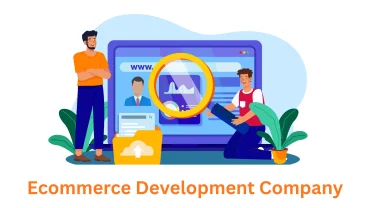Kotlin has solidified its position as the preferred language for Android development, offering concise syntax, improved safety, and seamless interoperability with Java. As the mobile landscape continues to evolve, staying abreast of the latest Kotlin trends is crucial for building high-performing, user-friendly apps. In this post, we’ll explore the technologies, tools, and techniques that are shaping the future of Kotlin development.
1. Kotlin Multiplatform Mobile (KMM):
KMM is revolutionizing cross-platform development by enabling developers to share business logic and common code between Android and iOS applications. This approach reduces development time, ensures consistency, and streamlines maintenance. If you’re looking to target both major mobile platforms, KMM is a game-changer.
2. Jetpack Compose:
Google’s modern UI toolkit, Jetpack Compose, is redefining Android UI development with its declarative approach and streamlined architecture. Compose makes building complex, interactive interfaces more intuitive and efficient, leading to faster development cycles and improved user experiences.
3. Coroutines and Flow:
Kotlin’s coroutines and Flow API provide powerful tools for managing asynchronous operations and handling streams of data. These features make it easier to build responsive, reactive apps that efficiently handle network requests, database queries, and other background tasks.
4. Koin:
Dependency injection (DI) is a cornerstone of modern software development, and Koin is the go-to DI framework for Kotlin. Koin simplifies the management of object dependencies, leading to cleaner, more testable code.
5. Ktor:
For building scalable and efficient server-side applications in Kotlin, Ktor is the ideal framework. Its lightweight nature, flexibility, and coroutine-based architecture make it a popular choice for creating APIs, microservices, and web applications.
6. Arrow:
Functional programming (FP) is gaining traction in the Kotlin community, and Arrow is a comprehensive library that brings FP concepts to the language. Arrow provides abstractions for functional data structures, type classes, and effects, empowering developers to write more robust and maintainable code.
7. Detekt and KtLint:
Maintaining code quality is essential for any project, and Detekt and KtLint are indispensable tools for static analysis and code formatting in Kotlin. These tools help identify potential issues, enforce coding standards, and ensure consistency across your codebase.
8. MockK:
Unit testing is a critical aspect of software development, and MockK is a powerful mocking library designed specifically for Kotlin. MockK simplifies the creation of mock objects, making it easier to isolate and test individual components of your application.
9. SQLDelight:
If your app interacts with databases, SQLDelight is a fantastic library for working with SQL in Kotlin. SQLDelight provides type-safe SQL queries, schema management, and database migrations, making database interactions more reliable and efficient.
Partner with Associative for Kotlin Excellence
At Associative, we specialize in Kotlin app development, leveraging the latest technologies and trends to create exceptional mobile experiences. Our team of experienced Kotlin developers can help you build robust, scalable, and innovative Android apps that meet the needs of your users and drive business growth.
Services Provided by Associative:
Contact us today to discuss your Kotlin app development project and discover how we can transform your ideas into reality.
To learn more, consider reading other articles, blogs, and stories in this area.
Top Kotlin App Development Company
Seeking top-tier Kotlin app development services
The Kotlin App Development Toolkit: Essential Tools & Platforms for Success
Kotlin App Development: The Future of Android & Beyond
Kotlin App Development: Your Roadmap to a Thriving Career in Mobile Tech



Comment (0)